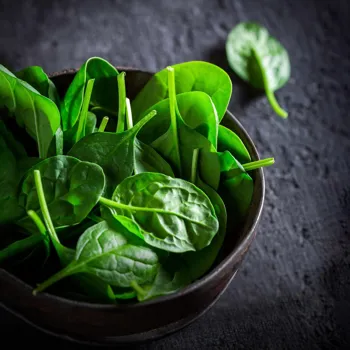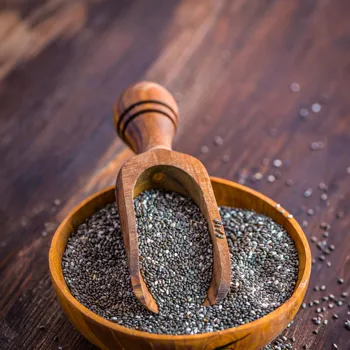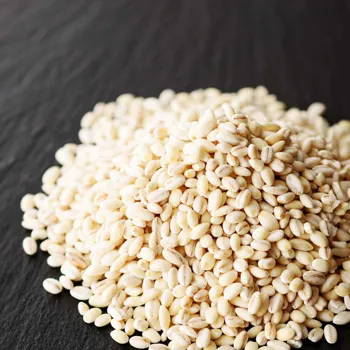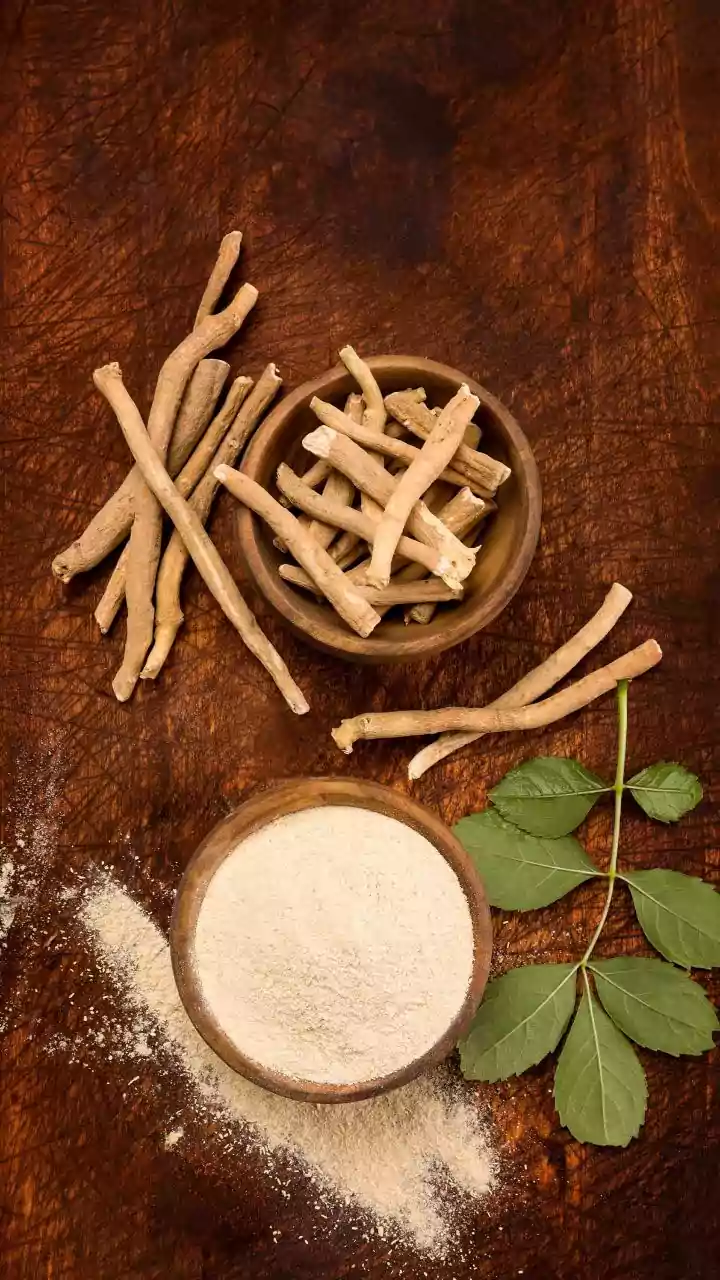Unlock the Power of Superfoods! Discover 7 Nutrient-Packed Choices for a Healthier You. Read on!
In a world brimming with dietary advice and trendy food fads, it's easy to get lost in the maze of information.
But fear not, fellow Indians!
We're here to cut through the noise and present you with a simple, straightforward guide to superfoods – those nutrient-packed powerhouses that can give your health a serious boost. Forget complicated recipes and hard-to-find ingredients.
We're focusing on accessible, affordable, and delicious options readily available in your local markets. We'll explore seven incredible superfoods, diving into their unique benefits and offering easy ways to incorporate them into your daily diet.
Get ready to embark on a delicious and nutritious journey to a healthier you! Ready or not, here we go!
Amla (Indian Gooseberry): The Vitamin C Champion
Amla, also known as the Indian gooseberry, is a tiny fruit that packs a serious punch when it comes to health benefits. Known for its tart and tangy taste, it's a true champion of Vitamin C, an essential nutrient for boosting immunity, fighting off infections, and keeping your skin glowing.

Just one amla can provide a significant portion of your daily Vitamin C needs, making it a fantastic addition to your diet, especially during flu season. However, the benefits of amla don't stop there.
This amazing fruit is also rich in antioxidants, which help protect your cells from damage caused by free radicals, reducing the risk of chronic diseases like heart disease and cancer. Amla is a great source of fiber, aiding in digestion and promoting gut health.
And it's not just the fruit itself that's beneficial. Amla powder, made from dried amla, can be easily added to smoothies, juices, or even sprinkled on your morning breakfast cereal. Amla juice is another popular option, and you can find it readily available in many stores.
You can even make your own homemade amla candy or pickle. Amla truly a versatile and incredibly beneficial ingredient to support vibrant health.
Amla is a nutritional powerhouse brimming with Vitamin C and antioxidants, supporting a robust immune system and overall well-being.
Its high fiber content promotes healthy digestion, making it a valuable addition to any diet. Exploring different ways to consume amla can make your culinary journey exciting.
Spinach: The Iron Fortress
Popeye's favorite food is a superfood with good reason! Spinach is overflowing with essential nutrients, making it a staple for a healthy diet. First and foremost, spinach is an excellent source of iron, a crucial mineral for carrying oxygen throughout your body.

Iron deficiency can lead to fatigue, weakness, and even anemia, so getting enough iron is vital. Spinach also contains Vitamin K, essential for blood clotting and bone health. Its also packed with Vitamins A and C, alongside valuable antioxidants.
This leafy green can contribute to both immune function and vibrant skin. Furthermore, spinach is low in calories and high in fiber, making it a fantastic choice for weight management and maintaining a healthy digestive system.
Incorporating spinach into your diet is incredibly easy.
Add a handful to your morning smoothie, toss it into salads, or sauté it with garlic and spices for a simple and delicious side dish. Spinach can also be added to soups, stews, and curries for an extra boost of nutrients.
Baby spinach is particularly tender and can be eaten raw, while mature spinach can be cooked or steamed. No matter how you choose to enjoy it, spinach is a delicious and versatile way to boost your health. Don't be afraid to explore different ways to cook and eat this amazing superfood!
Spinach is a nutritional champion abundant in iron, Vitamins A, C, and K, and antioxidants. Its versatility makes it easily incorporated into smoothies, salads, and cooked dishes. Start consuming Spinach to enrich your health!
Turmeric: The Inflammation Fighter
Turmeric, that vibrant yellow spice commonly used in Indian cuisine, is much more than just a flavour enhancer. It's a potent medicinal herb with powerful anti-inflammatory and antioxidant properties, thanks to its active compound, curcumin.
Chronic inflammation is linked to various health problems, including heart disease, arthritis, and even cancer. Curcumin helps to reduce inflammation in the body, potentially lowering the risk of these diseases.
Turmeric has also been shown to improve brain function, boost immunity, and even alleviate pain. It is considered as a magical ingredient to boost your health.
To get the most benefits from turmeric, it's best to consume it with black pepper.
Black pepper contains piperine, a compound that significantly enhances the absorption of curcumin in the body. Adding a pinch of black pepper to your turmeric dishes or drinks can greatly increase its effectiveness. You can add turmeric to your curries, soups, and stews.
A popular way to consume turmeric is in the form of "haldi doodh" or turmeric milk, a warm and comforting beverage made with milk, turmeric, black pepper, and a touch of honey or sugar.
Turmeric's active compound, curcumin, boasts potent anti-inflammatory and antioxidant properties, reducing risks of several health problems. Consuming it with black pepper enhances curcumin absorption, maximizing its benefits.
There are numerous cooking and food items where turmeric can be included.
Chia Seeds: The Tiny Powerhouse
Don't let their small size fool you – chia seeds are a nutritional giant, packed with fiber, protein, and omega-3 fatty acids. Fiber is crucial for digestion. This helps in regulating blood sugar levels, and keeping you feeling full and satisfied.

Protein is essential for building and repairing tissues. Omega-3 fatty acids are important for brain health, reducing inflammation, and lowering the risk of heart disease. Chia seeds are also a good source of antioxidants, which help protect your cells from damage.
The best part about chia seeds is that they are incredibly versatile and easy to incorporate into your diet. You can add them to your smoothies. Sprinkle them on your breakfast cereal or oatmeal. Or mix them into yogurt.
Chia seeds have the amazing ability to absorb liquid and form a gel-like consistency. This phenomenon makes them great for thickening sauces and puddings. You can also try making chia seed pudding by soaking chia seeds in milk or yogurt overnight.
This results in a creamy and delicious breakfast or snack. Also, you can add chia seeds as part of baking recipes to boost your energy.
Chia seeds are minute powerhouses filled with fiber, protein, and omega-3 fatty acids, promoting healthy digestion and overall wellness.
They can be easily added to smoothies, yoghurt, or used to create wholesome puddings. From children to elder one must consume it.
Lentils: The Protein Punch
Lentils are an important base in Indian cuisine, and for good reason! These humble legumes are a fantastic source of plant-based protein, making them an excellent choice for vegetarians and anyone looking to increase their protein intake. Protein is essential for building and repairing tissues.
Its also important for supporting muscle growth. Lentils are also packed with fiber, which keeps you feeling full and helps to regulate blood sugar levels. They are a good source of iron, folate, and other essential nutrients. Folate is particularly important for pregnant women.
There are many different types of lentils available, each with its own unique flavor and texture. Red lentils cook quickly and become soft. Those are great for soups and stews, while green and brown lentils hold their shape better. Those are excellent for salads and side dishes.
Dal is a staple in many Indian homes. It can be made with a variety of different lentils and spices. You can also add lentils to soups, stews, and curries for an extra boost of protein and fiber. Lentils are a delicious, affordable, and versatile way to boost your health.
You must eat lentils for a balanced diet.
Lentils provide a great supply of plant-based protein and fiber, supporting muscle growth, healthy digestion, and balanced glucose levels. These are the most affordable super food you can explore. From a toddler to old age people can consume this.
Quinoa: The Complete Protein
Quinoa, pronounced "keen-wah," has gained popularity as a healthy and versatile grain, and rightfully so. Unlike most grains, quinoa is a complete protein, meaning it contains all nine essential amino acids that the body cannot produce on its own.

This makes it an excellent choice for vegetarians and vegans who may struggle to get enough protein from other sources. Quinoa is also a good source of fiber, iron, magnesium, and other essential nutrients. And is gluten free and can be consumed by people having allergy to wheat.
Quinoa is quick and easy to cook, making it a convenient option for busy weeknights. Simply rinse the quinoa, simmer it in water or broth for about 15 minutes, and fluff it with a fork. You can use quinoa in place of rice or other grains in your favorite dishes.
Add it to salads, soups, or stir-fries. Quinoa can also be used to make breakfast porridge or even flour. This provides a boost of nutrition to your baked foods. Its nutty flavor and fluffy texture make it a delicious and healthy addition to any meal.
Everyone should add quinoa as part of the diet for a balanced diet.
Quinoa stands out as a complete protein, delivering all nine essential amino acids. Incorporating this grain into salads, soups, or as a rice replacement is convenient with its cooking. It is healthy and boosts energy.
Moringa (Drumstick): The Multi-Vitamin Tree
Moringa, also known as the drumstick tree, is a true gift of nature, packed with an incredible range of vitamins, minerals, and antioxidants.

Often referred to as a "miracle tree," moringa leaves are exceptionally nutritious, containing high amounts of Vitamin A, Vitamin C, potassium, calcium, and iron. It is believed to have anti-inflammatory properties and may help regulate blood sugar. Every part of the moringa tree is edible.
The leaves, flowers, pods, and seeds, each provide unique health benefits.
Moringa leaves can be added to salads, soups, and stir-fries. You can also make moringa tea by steeping the dried leaves in hot water. Moringa powder, made from dried and ground moringa leaves, is another convenient option.
You can add it to smoothies, juices, or even sprinkle it on your food. The drumsticks, or pods, are commonly used in Indian cuisine to make flavorful curries and stews. Moringa truly is a superfood that can provide a comprehensive range of nutrients to support your overall health.
Eat healthy and live happily.
Moringa, or drumstick, is abundant in essential nutrients like Vitamins A and C, potassium, calcium, and iron, offering an array of health benefits. The leaves can be added to various dishes as well. Consider adding Moringa as part of your diet for healthy living.





















